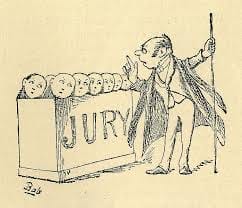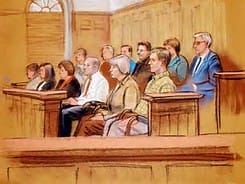Bill C-75: An Act to relieve judicial delay
Bill C-75 received Royal Assent on June 21, 2019. The Act amends the Criminal Code, the Youth Criminal Justice Act (“YCJA”), the Victim Surcharge Bill (C-28), the Exploitation and Trafficking in Persons Bill (Bill C-38), and the Unconstitutional provisions Bill (Bill C-39).

Lacking a comprehensive amendment since 1972, the bail provisions of the Criminal Code have been revised to address concerns that have been mounting for several decades. The Act seeks to simplify the judicial interim release process by expanding the conditions on which the police can release an Accused person, thereby making an appearance before a Justice unnecessary. The Act will also seek to reduce judicial delay by ensuring that release conditions are not redundant, unrealistic or overly complex, and that sureties are not overburdened.
If successful, the amendments relating to bail will result in fewer Administration of Justice Offences (“AOJO”) being brought before the Canadian courts. In any event, the Act has laid new framework by which these offences will be dealt with. Offences of this nature are offences that are “committed against the integrity of the justice system”, including but not limited to: failing to comply with bail conditions (no contact, no-go, abstinence alcohol/drugs to name a few), failure to appear in court, and breach of probation. Amendments to the Act provide that these offences will be directed to a judicial referral hearing when appropriate, as opposed to immediately laying a breach charge. At a judicial referring hearing, rather than focus on the guilt or innocence of the accused, the Judge will review the conditions imposed, and will decide how to proceed. Judicial referral hearings will not appear on a person’s criminal record – however, if a person does not appear for their hearing, the investigating police officer may use their discretion to either drop or proceed with the charge. Since Administration of Justice Offences account for about 4 out of every 10 incidents reported by police, removing these matters from the traditional court process will likely have a substantial impact on managing judicial delay.
The Act amends several portions of the YCJA. Firstly, it limits the conditions that can be placed on a young person upon their release from custody, in hopes of avoiding breaches that occur only due to unnecessarily rigid conditions. The intended result will be lower frequencies of Administration of Justice Offences. Additionally, prosecutors will no longer be obligated to consider an adult sentence for youth charged with serious violent offences, and are no longer obligated to bring that decision to the attention of the Court. The Crown will also not be obligated to consider an adult sentence for a youth convicted of a serious, violent offence.
In the interests of addressing delay, the Act has also removed certain elements of the judicial process, many of which could likely hinder an Accused person’s ability to make full answer and defence to the charges against them. Firstly, the Act restricts the availability of Preliminary Inquiries to offences that carry a maximum punishment of 14 years or more in prison (previously, any indictable offence could attract a Preliminary Hearing). Preliminary Hearings are an excellent opportunity for the Crown, Defence and Judge to assess the strength of the prosecution’s case. It assists with judicial case management, providing insight into the length of time required for witnesses to give their evidence, issues requiring a Voir Dire, and the number of days required for trial. In certain instances, it may also provide an opportunity for the defence to consider a resolution proposal, in circumstances where the evidence presented guides such a decision. Additionally, the Act permits Judges to limit the issues explored during a Prelim, and which witnesses may be called. It goes without saying that indictable matters aside from first degree murder and aggravated sexual assault are deserving of a Preliminary Hearing.
The Act also modifies the procedure for jury selection. Peremptory challenges, which allowed counsel to reject a potential juror without requiring a reason, have been abolished. There were serious concerns surrounding the misuse of peremptory challenges to ensure the jury was of a particular composition – one that would be adverse to the interests of the Accused.
The objective of the Act, broadly, is to reduce judicial delay by targeting and eliminating systemic flaws that impede the wheels of justice from turning as they should – but constitutional challenges are still to be expected.
If you’ve been charged with a criminal offence, it is crucial that you contact an experienced criminal lawyer without delay. We are conveniently located in Richmond, B.C., only a few steps away from Brighouse Station on the Canada Line, which brings you from various locations in Metro Vancouver in 20 minutes. We service all areas of the lower mainland (including but not limited to Surrey, New Westminster, Port Coquitlam, North Vancouver, and Abbotsford) the interior of B.C. (including but not limited to Cranbrook, Kelowna, Kamloops, and Salmon Arm), Northern B.C. (including but not limited to Prince George, Prince Rupert, and Quesnel) and in the Yukon Territory where we offer services in Whitehorse, Dawson City, Faro, Mayo, and Old Crow. Contact our office today to speak to a criminal defence lawyer without delay.

